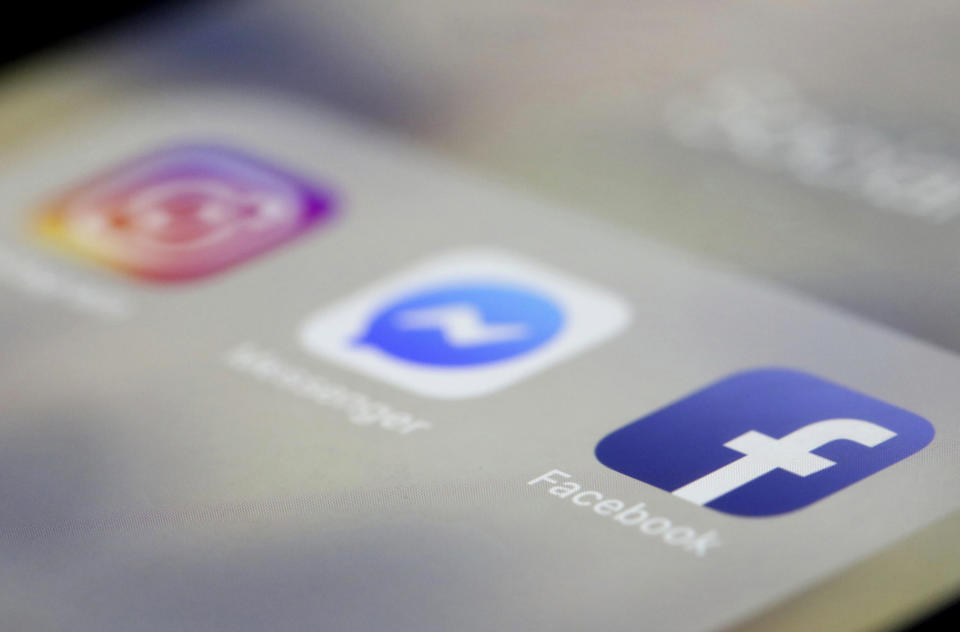Study shows Facebook’s customer-satisfaction scores plunging

You’re not the only person who’s feeling grumpy about Facebook (FB). A new survey shows customer satisfaction with the social network plunging to a level that almost makes cable TV look good.
The latest findings from the American Customer Satisfaction Index show that the popular mood has flipped against Facebook to a degree rarely seen in the Ann Arbor, Mich.-based ACSI’s annual survey.
“ACSI results show a dramatic loss in user satisfaction with Facebook, and the site plummets 6% to the industry’s bottom with an ACSI score of 63,” the study reports. That’s 63 out of 100, a D- grade that only stands a point above the 62 score the pay-TV industry notched in the ACSI’s latest assessment.
In contrast, while people love to complain about airlines, that industry has an ASCI score of 74. Facebook would be foolish to see this score as anything other than an angry-face emoji.
The bad news has piled up
The ACSI study cites Facebook privacy as the top complaint, saying customer satisfaction with that hit “an all-time low” and is now “trailing all other social media sites by a wide gap.” How wide remains unclear; ACSI managing director David VanAmburg said in an email sent by a publicist that the survey doesn’t release those data subsets to the public.
Whatever the number, you can’t blame Facebook users for fretting about how much the firm knows about them—to the degree that people will believe the unsupported and improbable charge that its mobile apps listen to them surreptitiously.
The Cambridge Analytica scandal saw the information of tens of millions of users scooped up by a third-party app, and is now the subject of the Netflix (NFLX) documentary “The Great Hack.” As a result, the Federal Trade Commission hit Facebook with a $5 billion fine to punish it for that and other failings.
But the small size of that penalty next to Facebook’s $16.9 billion in second-quarter revenue only fuels the feeling that the company can continue to avoid accountability and pursue such grandiose goals as introducing a worldwide cryptocurrency called Libra.
The ACSI further saw customers rank Facebook below rivals in the intrusiveness of its ads, the difficulty of uploading photos and video, and the overall quality of its news feed. That last item is also easy to understand, considering Facebook’s struggles with fake personal accounts. fake public pages, and fake or doctored videos.
But we’re okay with Instagram
And yet ACSI respondents—almost 8,000 people randomly selected from a pool of some 300,000 and interviewed via email between July 17, 2018, and June 26, 2019, so it doesn’t reflect Facebook’s latest mishaps—gave Instagram a score of 72, unchanged from last year. This despite the fact that the photo-sharing service is owned by the company they don’t trust to protect their privacy.

The ACSI’s VanAmburg said that reflects the survey’s focus on app experiences.
“ACSI’s benchmark data reflect users’ impressions of the responsiveness of the app, if the ads are intrusive, and how easy the app is to navigate,” he wrote. “That Facebook owns Instagram likely isn’t factored into user assessments and therefore the tie isn’t extensively captured in ACSI data, if at all.”
It’s also true that many Instagram users treat it as a separate network. Combined with such a high ACSI score, that suggests “Insta” would be a powerful competitor to Facebook—but the FTC punted on forcing Facebook to undo its 2012 purchase of that firm.
ACSI users were happiest with Pinterest (PINS), which was unchanged from last year’s survey at 80. YouTube ranked second at 78, up from 75 despite that Google (GOOG, GOOGL) service’s continued flailing in the face of extremist content and abusive behavior.
Things you can do about Facebook
Will these feelings put a meaningful dent in Facebook? Facebook’s own numbers show a slight increase in daily average users in the U.S. and Canada to 187 million users, but that’s not the whole story.
The research firm eMarketer’s numbers suggest that we’re going on a bit of a Facebook detox, with average daily time spent dropping from 41 minutes in 2017 to 38 minutes in 2018. Changing the settings in Facebook’s apps to bug you less often can help with that.
To hit Facebook harder, switch to a desktop web browser that stops Facebook’s tracking of you across other sites—the key to its booming ad business and the real reason why those ads can seem frighteningly well informed. Apple’s (AAPL) Safari browser has done that since 2018, and Mozilla Firefox added the same default protection last month.
And whenever Facebook finally ships the “Clear History” option to wipe its data about your web habits—first announced last May but still unavailable—you should use that immediately.
Meanwhile, the ACSI’s own history suggests that Facebook has yet to hit bottom. Its lowest score ever, 61, came in 2012, the year after its previous FTC settlement. Another year of headlines like the last 12 month’s worth could easily send Facebook’s score lower.
Email Rob at rob@robpegoraro.com; follow him on Twitter at @robpegoraro.

